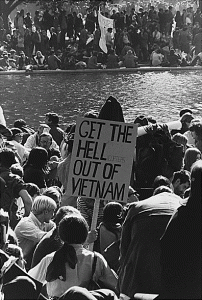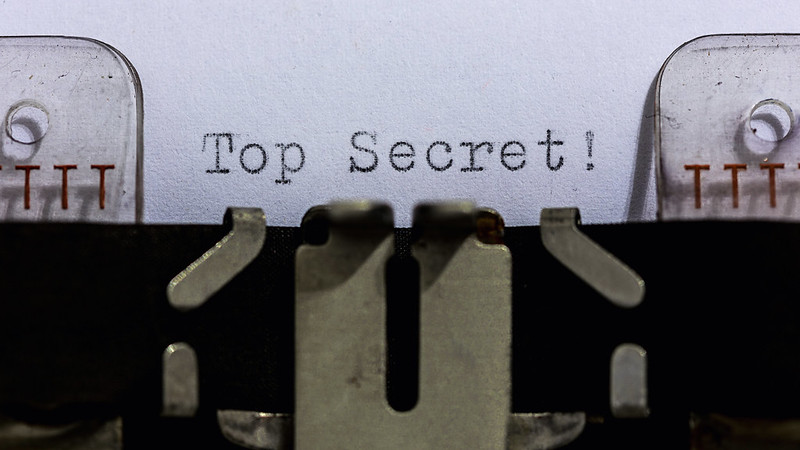In the last 50 years, the world was awestruck by several shocking leaks of classified information. Starting in the 1970s with the Pentagon Papers and Watergate scandal, which made history as the biggest revelations of classified information, and continuing with the 2010s, when Julian Assange with Chelsea Manning and Edward Snowden revealed an unprecedented number of secrets no one could imagine before. This article analyses a few of the most significant leakers from the 20th and 21stcenturies. The cases used in the study are Daniel Ellsberg from the Pentagon Papers, W. Mark Felt commonly known as “Deep Throat” from the Watergate scandal, Chelsea Manning from WikiLeaks’s Iraq and Afghan War Logs, and Edward Snowden and his NSA leaks.
The analysis examines the specific cases based on three categories. Firstly, the person’s background, including education, the nature of his or her work and how long they had access to classified materials. Secondly, it examines the relevant society’s background, focusing on the public opinions around the time of the leak. Thirdly, the article states the leaker’s proclaimed motivation behind his decision to leak the classified documents or information. All gathered data are then examined with the aim to shed light on the background and assesses the truth behind the proclaimed motivations to help understand the leakers’ situation and decisions.
Daniel Ellsberg and the Pentagon Papers
The Pentagon papers were examining the role of the United States in the Vietnam war, in the period between the second world war and May 1968. They were commissioned by the U.S. Secretary of Defense, Robert McNamara in 1967. [1] A section of this top-secret document was released in 1971 in The New York Times. It described how Johnson’s administration has been providing misleading information about the causes and progress of the Vietnam war to the U.S. Congress and the public. [2] The Washington Post later joined the New York Times and fought a temporary restricting order until the papers were published in a book form in 1971. The full study was declassified in 2011. [1]
The person behind the leaks was Daniel Ellsberg. He was born in Chicago in 1931, graduated first in his class, and won a four-year scholarship at Harvard. His senior honours thesis discussed theories of decision-making. After his studies he spent three years in the U.S. Marine Corps, and then finished his PhD at Harvard, again focusing on decision making, and popularizing the Ellsberg paradox. Since 1959 he worked as a strategic analyst at the RAND Corporation where he had access to the country’s most highly guarded secrets revolving mainly around nuclear war plans. In the 60s, Ellsberg advised the White House on problems regarding the command and control of nuclear weapons, nuclear war plans, and crisis decision-making, and served as Special Assistant to Assistant Secretary of Defense, John T. McNaughton. In this position, he worked on secret plans to escalate the Vietnam war, which he later joined as a soldier. [3]
After his return from Vietnam, he participated in the Top-Secret McNamara study, U.S. Decision-making in Vietnam, 1945-68, later published as the Pentagon Papers. He also worked as a consultant to Henry Kissinger, National Security Assistant to President-elect Richard Nixon, and provided them with information and recommendations regarding Vietnam. Once he got fed up with the situation, he photocopied the top-secret document and provided it to Senator William Fulbright, who, however, held back from bringing them out. He then decided to hand the study to the New York Times, Washington Post, and two other media outlets. Ellsberg was trialled with a possible sentence of 115 years, but after two years, all charges against him were dismissed. It is also important to say that President Nixon tried to blackmail and “incapacitate totally” Ellsberg out of fear of publishing other documents. [3]

The Vietnam war became unsupported by the public between 1966 and 1973 when more than 503,000 U.S. military personnel deserted and violent protests in a great anti-war movement took place. [4] Ellsberg himself states that he had his doubts about the escalation of the Vietnam war since he started working for McNamara, in 1964. [3] Nevertheless, he says that he decided to come out with the truth only after he saw young nonviolent protesters going to prison for wanting to stop the war. It is also interesting that he wanted to come out with information about an existing missile gap in favour of the Russians and the possibility of a Russian surprise attack but decided to prioritize the topic of Vietnam. [5]
What is interesting about the Ellsberg case is that at first, he was a very disciplined person, according to his history with the military. Given his success in school, he must have also been very motivated. When Ellsberg was working on the study that eventually made the headlines all over the world, he was only 36 years old and before that, he managed to be a marine, to work on top-secret materials, to advise the White House on paramount topics, and to fight in a war. Therefore, Ellsberg was involved in and supportive of the interests of his nation. How could he decide to leak a top-secret document, then?
I suspect that it wasn’t the solidarity with the protesters that moved him, as he claims. The true motivation might lie in the fact that Ellsberg experienced the war, which he previously helped to escalate, first-hand when he was there as a soldier. The war horrors he saw might have been the first incentive to act. There might have even been a regret of his previous war-supportive actions. However, in the beginning, his approach to this situation was very honourable. He worked on a study that would reveal the truth about the U.S. failing in the war and the huge number of fallen. In the right hands, the study could stop the war. Nevertheless, the supposed right hands did nothing, so he took the responsibility upon himself and against the devotedness to the decision-makers of his nation that he showed all his life, he leaked the documents. After all, there was already an existing anti-war movement calling for the same cause, a kind of “public-opinion cushion” helping him bear the aftermath of his decision.
Mark Feld and the Watergate Scandal
Watergate Scandal is a series of interlocking scandals of the administration of U.S. President Richard M. Nixon that were revealed in 1972 after five burglars have been caught by the police at the office of the Democratic National Committee (DNC) in the Watergate complex. Four of these agents were formerly working for the CIA and the last one was the security chief of the Committee to Re-elect the President (later known popularly as CREEP). CREEP has placed wiretaps in the DNC’s offices. Together with Nixon’s secret recordings of his phone calls and conversations in the Oval Office, known as the Nixon tapes, proved the president’s involvement in a criminal cover-up of CREEP’s doings. Nixon then resigned to avoid impeachment. Journalists Carl Bernstein, and Bob Woodward became popular for informing about the whole affair. [6]

Behind the Watergate scandal leaks was the associate director of the Federal Bureau of Investigation (FBI), William Mark Felt, Sr., known from the 70s until the revelation of his true identity in 2005 only by his pseudonym “Deep Throat”. [7]
Felt studied for a bachelor’s degree in his home state, Idaho, and during his master’s studies in Washington worked for U.S. Senator James Pope and his successor after that. Shortly after finishing his master’s Felt joined the FBI. His job description was to track spies and saboteurs in the time of war, oversee background checks on workers at the Hanford plutonium plant, investigate organized crime, and train new agents. In 1972 Felt became an Associate Director, the number-two job in the bureau. In 1973 he almost got the post of FBI’s director, but Nixon decided to appoint someone else instead, reportedly because the president did not want to have someone from the “old guard” in that position. Felt never managed to develop a good relationship with his superior and retired in June 1973. [8]
For a year, Felt was the key control point for FBI information including the Watergate scandal. During this whole time, he was leaking the secrets to journalists Woodward and Bernstein. Furthermore, Felt reportedly discussed politics and government even before the scandal with Woodward. During 1972 Felt provided Woodward with the information about Arthur H. Bremer, the man who shot the governor of Alabama, George C. Wallace. [8]
The Watergate scandal happened around the same time as the Pentagon Papers. Many people were dissatisfied with the status quo and their government. Protests were led against the Vietnam war, and for women’s, African American’s, Native American’s and lesbians and gay rights and equality. President Nixon was supported by the so-called “silent majority”, which represented the middle class, that was responsible for his election, but since he abolished almost the whole War on Poverty program from his predecessor and was anti desegregation, the protests against his re-election became very loud. This part of society was supportive of Felt’s leaks during that time. [9]
According to his family, Felt told his secret identity only to his wife, one close friend, and no one else for such a long time, due to doubting his own doing. The information was passed directly from the family to Vanity Fair magazine shortly after the Globe journal released unconfirmed information that Felt is Deep Throat. [10] By the way, the Vanity Fair article was most probably released because of Felt’s daughter’s wishes, not his own.
Mark Felt stands out from all the cases in this study because it seems he still wasn’t sure if he wanted to reveal his identity. Just like Ellsberg, he was very loyal to his nation and even though he didn’t regret the decision to leak, he saw it as an act of dishonour.
What makes Felt’s case different from the others, it that he had access to the classified materials for 31 years, before he decided to leak. That is almost two decades longer than all the other leakers listed in this article. Nevertheless, the public opinion, which was reflected louder due to the demonstrations, probably played a significant role in the decision to leak as well. Felt was also the only one from the researched cases that didn’t go to his superior first, but that is quite logical, since there was only one person above him in the bureau and as stated before, he was a Nixon supporter.
Chelsea Manning and the Iraq and Afghan War Logs
In 2010 an organization that publishes datasets of censored or otherwise restricted material called WikiLeaks published revealing information about the truth of the U.S. military involvement in Iraq and Afghanistan, called the Iraq War Logs and the Afghan War Logs. The logs focused on the U.S. failing to investigate hundreds of reports of abuse, torture, rape and murder by the Iraqi soldiers and police, a U.S. Apache helicopter gunship firing on surrendering insurgents, and in another incident killing two journalists and wounding children. [11] It exposed private cables from the State Department and assessment reports of Guantánamo prisoners. [12] A person who leaked the classified materials to WikiLeaks was Manning, born Bradley Manning.[1]

Manning comes from Oklahoma and her whole life she battled with being a transgender woman. Her life was naturally affected by her situation, and she grew up in not a particularly stable environment partly because of her internal struggle. [12] Nevertheless, she decided to join the Army in 2007 and became an intelligence analyst. Even with her emotional problems, which were apparent during her first years in the Army, when she was involved in conflicts with other soldiers and her superiors, she was sent to work at a military base in Bagdad. [13]
After a year at the base, she realised her patriotic values weren’t that serious. She describes her feelings by being depressed by the U.S. military situation in Iraq and Afghanistan. Manning also claims that she felt the information she had access to, could spark a domestic debate about the U.S. involvement. After the rejection to publish by The Washington Post and New York Times, she handed the classified materials to WikiLeaks. The same year, she was detained and eventually sentenced to 35 years in prison. She was granted clemency and released in 2017, after seven years of imprisonment. [13]
The general public’s opinion regarding the involvement of U.S. troops in Iraq in July 2009 was around 60% unsupportive. [14] However, Obama decided to end the war already in 2008 and promised to withdraw all troops until the end of 2011, which he did. [15] Regarding the war in Afghanistan, Obama decided to prioritize this war in 2009. [16] While the public support was around 30%.[17]
Manning says her motivation behind leaking was that her superiors and politicians only listened to the part of her analyst work, which they wanted to hear, and provided the public with incomplete information about what was happening. [18] And her true motivation was to help people and start the debate on the use of technology in warfare. [19] If that indeed was her true and only motivation is difficult to evaluate because of her unstable behaviour, young age, and her swift change of ideals. However, she probably never actually supported warfare, assessing according to the circumstances in her life at the time she joined the Army.
From these four cases, Manning holds the record of the shortest time of access to classified material before the decision to leak. Her story also shows that the American military and intelligence sector needs to put more focus on the emotional wellbeing of the personnel with access to the information vital to national security.
Edward Snowden and the NSA leaks
In June 2013, The Guardian released an article revealing that The National Security Agency (NSA) has been requiring telephone records of millions of U.S. customers from one of America’s largest telecom providers, Verizon. The collection of data was authorized by a top-secret court order back in April that year. [20] The information collected included emails, voice and video chats, other videos, photos, and social networking details. The Washington Post reported that Google, Facebook, Apple, and other major internet companies, were also aiding NSA and FBI with data collection from their users. [21]
It took the United States seven years to condemn the controversial intelligence programs that were uncovered by a former CIA contractor, Edward Snowden. [22] He found out that NSA can analyse anyone according to the three degrees of separation condition. This means when an average Facebook user has 190 friends, the NSA would be able to gather data about his friends, their friends, and their friends, which is 5,072,916 people, a network bigger than the population of Colorado. This revelation shocked the whole world, and its leaker became very famous for it. [23]
Snowden was born in North Carolina, he comes from a family whose many members worked for the government services, including the judiciary, military, and the FBI. Snowden dropped out of high school, but completed GED and attended a community college, however never earned a degree. He also trained for the Army but left due to an injury. After working shortly as a security guard, he landed a job at the CIA where he only spent a few years before he started working for the computer company Dell, which collaborated with the NSA. He stuck with Dell only for a short time before leaving for Booz Allen Hamilton, which was also NSA’s subcontractor. Since his first job, he had clearance and therefore access to classified materials. [24]
Since 2001 been leading the so-called “War on Terror” as a reaction to the 9/11 attacks. In a poll took which took place in 2005, 73% of people were opposed to the idea of “making it easier for legal authorities to read mail, email, or tap phones without the person’s knowledge” and only 25% were in favour. [25] Some incidents discussed the controversies of the NSA use of the Patriot Act even before Snowden leaked. [26] From this information, we can state that the major public was wary of the NSA’s surveillance methods.
Snowden says he leaked because he wanted to spark the debate about the NSA’s surveillance methods and more generally, mass surveillance, and prompt programmers to build better encryption. [23] His motivations are most probably true since he saw the extent of the government lies about not spying on its citizens. Even though there was some speculation that he became an active “espionage source” for the Russian intelligence services,[27] there is no evidence that Snowden was indeed a Russian spy. [28]
Snowden was charged with violating the Espionage Act and if extradited to the U.S he would face up to 30 years in prison. To this day, he is in exile in Russia. As the only one from the prosecuted leakers in this article, he escapes the court decision. [29]
Many people still see all the leakers as heroes who guard the principles of democracy rather than villains who broke the law or endangered national security. According to the cases in this article, it does not matter whether the leakers worked with classified information all their life or just for a few years. It does not matter whether they had a degree or were in the army. However, a pattern can be found in going to their superior before leaking, with the exception of Felt that was explained above. And lastly, all the cases show that public opinion plays a vital part in the decision to leak and that without the support of the public, none of these people would probably ever reveal the ground-breaking information that shook the world.
Notes:
[1] As a whistleblower, Manning’s involvement in the leaks is from the perspective of this article more important than Julian Assange’s even though Assange is the persona behind WikiLeaks, therefore for describing a prototypical leaker, the article focuses on her instead of Assange.
Sources:
[1] The Editors of Encyclopaedia Britannica. “Pentagon Papers.” Encyclopedia Britannica. Retrieved from: https://www.britannica.com/topic/Pentagon-Papers. (Accessed 25. 11. 2021).
[2] Lewis, Tanya. (2013). “The 8 Craziest Intelligence Leaks in US History.“ Live Science. Retrieved from: https://www.livescience.com/37357-us-intelligence-leaks.html. (Accessed 25. 11. 2021).
[3] Ellsberg, Daniel. (2006). “Extended Biography.“ Ellsberg.net. Retrieved from: https://www.ellsberg.net/bio/extended-biography/. (Accessed 25. 11. 2021).
[4] History.com Editors. (2009). “Vietnam War.” HISTORY. Retrieved from: https://www.history.com/topics/vietnam-war/vietnam-war-history#section_7. (Accessed 24. 11. 2021).
[5] Fresh Air. (2018). “Daniel Ellsberg Explains Why He Leaked The Pentagon Papers.“ NPR. Retrieved from: https://www.npr.org/2018/01/19/579101965/daniel-ellsberg-explains-why-he-leaked-the-pentagon-papers. (Accessed 24. 11. 2021).
[6] Perlstein, Rick. (2021). “Watergate scandal.” Encyclopedia Britannica. Retrieved from: https://www.britannica.com/event/Watergate-Scandal. (Accessed 27. 11. 2021).
[7] Britannica, The Editors of Encyclopaedia. (2021). „Mark Felt“. Encyclopedia Britannica. Retrieved from: https://www.britannica.com/biography/Mark-Felt. (Accessed 27. 11. 2021).
[8] New World Encyclopedia contributors. (2020). “William Mark Felt.” New World Encyclopedia. Retrieved from: https://www.newworldencyclopedia.org/p/index.php?title=William_Mark_Felt&oldid=1043373. (Accessed 27. 11. 2021).
[9] History.com Editors. (2021). “The 1970s.” HISTORY. Retrieved from: https://www.history.com/topics/1970s/1970s-1. (Accessed 27. 11. 2021).
[10] O’Connor, John. (2005). “I’m the guy they called Deep Throat.“ Vanity Fair. Retrieved from: https://archive.vanityfair.com/article/2005/7/im-the-guy-they-called-deep-throat. (Accessed 28. 11. 2021).
[11] BBC. (2010). “Wikileaks: Iraq war logs ‚reveal truth about conflict‘.“ BBC. Retrieved from: https://www.bbc.com/news/world-middle-east-11612731. (Accessed 29. 11. 2021).
[12] Biography.com Editors. (2014). “Chelsea Manning Biography.” Biography.com. Retrieved from: https://www.biography.com/activist/chelsea-manning. (Accessed 29. 11. 2021).
[13] McGraw, Meridith and Kelsey, Adam. (2017). “Everything you need to know about Chelsea Manning.“ ABC News. Retrieved from: https://abcnews.go.com/US/chelsea-manning/story?id=44809970. (Accessed 29. 11. 2021).
[14] ABC News and Washington Post. (2009). „All in all, considering the costs to the United States versus the benefits to the United States, do you think the war with Iraq was worth fighting, or not?“ ABC News/Washington Post Poll. Retrieved from: https://www.pollingreport.com/iraq2.htm. (Accessed 29. 11. 2021).
[15] Compton, Matt. (2011). “President Obama Has Ended the War in Iraq.“ Obama White House Archives. Retrieved from: https://obamawhitehouse.archives.gov/blog/2011/10/21/president-obama-has-ended-war-iraq. (Accessed 29. 11. 2021).
[16] Council on Foreign Relations. “The U.S. War in Afghanistan.“ Council on Foreign Relations. Retrieved from: https://www.cfr.org/timeline/us-war-afghanistan. (Accessed 29. 11. 2021).
[17] Topline Data. (2009). “Transatlantic Trends.” Topline Data. Retrieved from: https://web.archive.org/web/20090920030448/http://www.gmfus.org/trends/2009/docs/2009_English_Top.pdf. (Accessed 29. 11. 2021).
[18] Sydney Opera House YouTube channel. (2020). “Chelsea Manning: Wants to Change the World | Digital Season.“ Interview by Peter Greste. Sydney Opera House. Retrieved from: https://www.youtube.com/watch?v=Ei2ElHzUI2U&t=935s&ab_channel=SydneyOperaHouse. (Accessed 29. 11. 2021).
[19] ABC News YouTube channel. (2017). “Chelsea Manning says she didn’t think her leaks would threaten national security.“ Interview by ABC News. Retrieved from: https://www.youtube.com/watch?v=mSx1VG8UnF8&ab_channel=ABCNews. (Accessed 29. 11. 2021).
[20] Greenwald, Glen. (2013). “ NSA collecting phone records of millions of Verizon customers daily.“ The Guardian. Retrieved from: https://www.theguardian.com/world/2013/jun/06/nsa-phone-records-verizon-court-order. (Accessed 30. 11. 2021).
[21] Lewis, Tanya. (2013). “The 8 Craziest Intelligence Leaks in US History.“ Live Science. Retrieved from: https://www.livescience.com/37357-us-intelligence-leaks.html. (Accessed 30. 11. 2021).
[22] Kubincanek, Emily. (2021). “ Panama, Pandora, and Pentagon Papers: 10 of the most groundbreaking leaks in history.“ Stacker. Retrieved from: https://stacker.com/stories/23703/panama-pandora-and-pentagon-papers-10-most-groundbreaking-leaks-history. (Accessed 30. 11. 2021).
[23] Macaskill, Ewen and Dance, Gabriel. (2013). “NSA Files Decoded.“ The Guardian. Retrieved from: https://www.theguardian.com/world/interactive/2013/nov/01/snowden-nsa-files-surveillance-revelations-decoded#section/1. (Accessed 30. 11. 2021).
[24] Young-Brown, Fiona. (2018: Cavendish Square Publishing LLC). Edward Snowden : NSA Contractor and Whistle-Blower. Retrieved from: https://ebookcentral.proquest.com/lib/cuni/reader.action?docID=5733946. (Accessed 30. 11. 2021).
[25] GALLUP poll. (2005). “Next, please tell me if you would favor or oppose each of the following as a means of preventing terrorist attacks in the United States. How about — making it easier for legal authorities to read mail, email, or tap phones without the person’s knowledge?“ GALLUP. Retrieved from: https://news.gallup.com/poll/4909/terrorism-united-states.aspx. (Accessed 30. 11. 2021).
[26] Wood, David Murakami and Wirght, Steve. (2015). “Before and After Snowden.“ Surveillance & Society 13(2):132-138. Retrieved from: https://www.researchgate.net/publication/320143084_Before_and_After_Snowden. (Accessed 30. 11. 2021).
[27] Budiansky, Stephen. (2017). “ Edward Snowden’s Real Motive.“ The Wall Street Journal. Retrieved from: https://www.wsj.com/articles/edward-snowdens-real-motive-1484611115. (Accessed 30. 11. 2021).
[28] Serwer, Adam. (2014). “Feinstein: No evidence Snowden is a Russian spy.“ NBC News. Retrieved: https://www.msnbc.com/msnbc/feinstein-no-proof-snowden-russian-spy-msna256491. (Accessed 30. 11. 2021).
[29] Amnesty International UK. (2020). “Why Edward Snowden should be pardoned.“ Amnesty International UK. Retrieved from: https://www.amnesty.org.uk/edward-snowden-nsa-whistleblower-pardon. (Accessed 30. 11. 2021).




